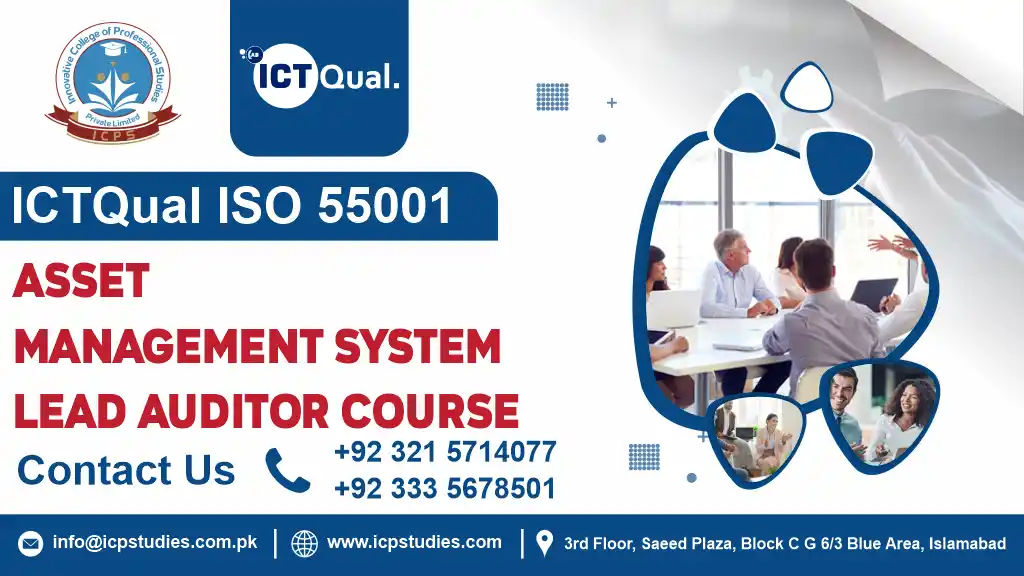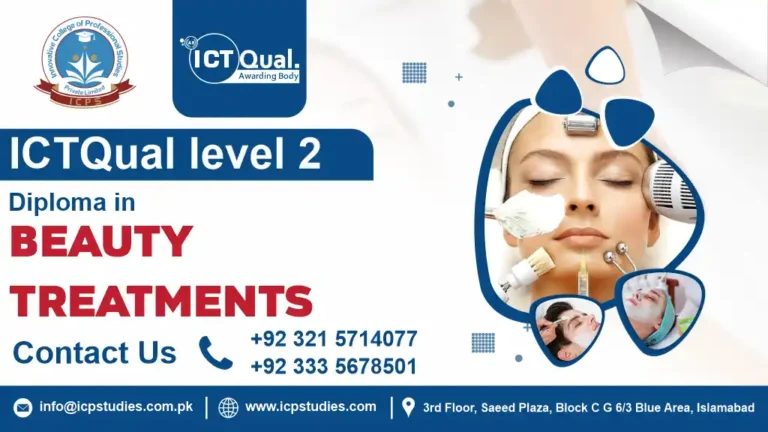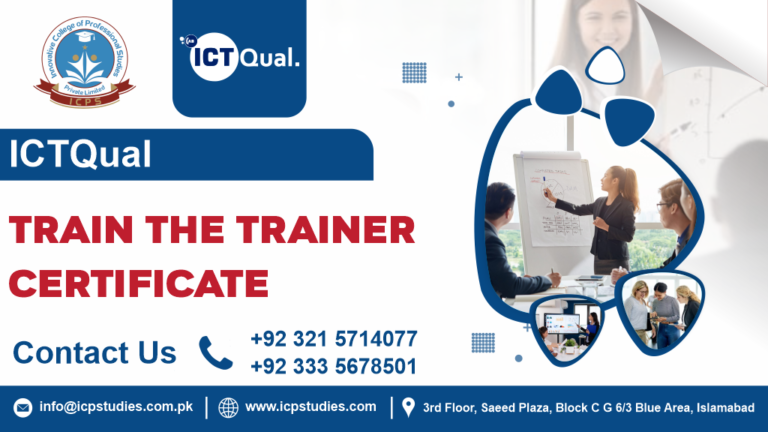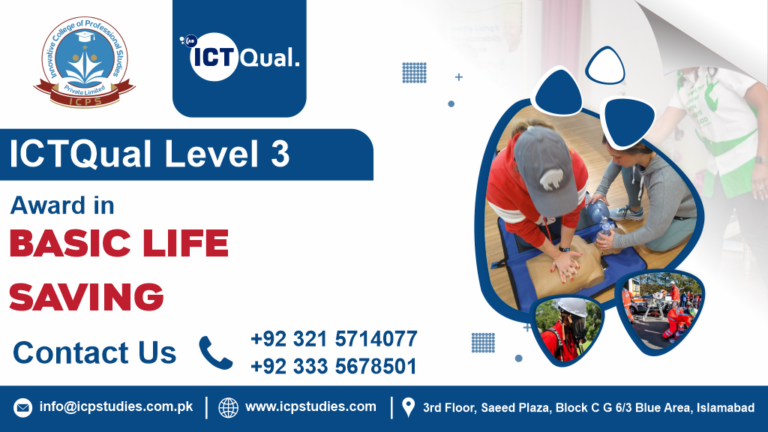In today’s fast-paced business environment, effective asset management is crucial for maximizing value, ensuring operational efficiency, and maintaining competitive advantage. The ISO 55001 Asset Management System Lead Auditor Course offers a comprehensive pathway to mastering the skills needed to audit and manage asset management systems in accordance with international standards. Whether you’re looking to advance your career or enhance your organization’s asset management practices, this course provides the knowledge and expertise required to excel.
ISO 55001 is an international standard that specifies the requirements for establishing, implementing, maintaining, and improving an asset management system. The standard is designed to help organizations manage their assets efficiently and effectively, ensuring that asset management practices align with their strategic objectives. By following ISO 55001, organizations can achieve better asset performance, reduce costs, and increase value from their assets.
The ISO 55001 Asset Management System Lead Auditor Course is an essential investment for professionals seeking to enhance their expertise in asset management and auditing. By gaining certification, you not only advance your career but also contribute significantly to the effectiveness and efficiency of asset management practices within organizations. If you’re ready to elevate your skills and make a meaningful impact in the field of asset management, enroll in this transformative course today and unlock new opportunities for growth and success.
All About ICTQual ISO 55001 Asset Management System Lead Auditor Course
Course Overview
The ICTQual ISO 55001 Asset Management System Lead Auditor Course is a specialized training program designed to equip professionals with the expertise needed to conduct comprehensive audits of asset management systems in accordance with the ISO 55001 standard. This course focuses on developing the skills required to evaluate, assess, and improve asset management practices within organizations, ensuring they align with international standards and best practices.
The ICTQual ISO 55001 Asset Management System Lead Auditor Course is an essential program for professionals seeking to excel in asset management auditing. It offers comprehensive training, practical experience, and internationally recognized certification, making it a valuable investment for those looking to advance their careers and improve asset management practices in their organizations. Enroll in the course to gain expertise, enhance your professional credentials, and make a meaningful impact in the field of asset management.
Study Units
- Introduction to Asset Management
- Overview of ISO 55001 Standard
- Leadership and Governance
- Planning Asset Management System Audits
- Conducting Asset Management System Audits
- Audit Process Management
- Auditing Asset Management System Requirements
- Reporting and Follow-up
- Educational Background: A degree in engineering, management, finance, or a related field is preferred.
- Work Experience: Relevant experience in asset management, operations, or quality assurance, usually 3-5 years.
- Familiarity with ISO Standards: Basic knowledge of ISO 55001 and related asset management standards is beneficial.
- Understanding of Asset Management Principles: Awareness of asset management concepts and best practices.
- Audit Experience: Prior experience in conducting audits or assessments, particularly in asset management or related fields, is often required.
- Analytical Skills: Ability to analyze asset management processes and evaluate compliance with standards.
- Communication Skills: Strong verbal and written communication abilities to effectively engage with stakeholders during audits.
These requirements ensure that participants are well-prepared to lead audits of asset management systems based on ISO 55001 standards.
- Asset Managers: Professionals responsible for managing and optimizing the performance of physical and financial assets.
- Quality Assurance Auditors: Individuals focused on assessing compliance with asset management standards.
- Operations Managers: Those overseeing operational processes and asset utilization within an organization.
- Consultants: Experts advising organizations on asset management best practices and ISO 55001 implementation.
- Internal Auditors: Professionals conducting internal audits to ensure compliance and improve asset management processes.
- Project Managers: Individuals managing projects that involve asset management and need to ensure alignment with ISO standards.
- Finance and Risk Managers: Those involved in financial planning and risk assessment related to asset management.
This course equips participants with the skills and knowledge necessary to effectively audit and assess asset management systems according to ISO 55001 standards.
4o mini
Learning Outcome
1. Introduction to Asset Management
Learning Outcomes:
- Understand Asset Management Concepts: Define key concepts and terminology related to asset management and its significance in organizational success.
- Recognize Asset Management Objectives: Explain the objectives of asset management and how effective asset management contributes to achieving organizational goals.
- Identify Asset Types and Lifecycle: Describe different types of assets and their life cycles, and understand how asset management practices vary across different asset categories.
2. Overview of ISO 55001 Standard
Learning Outcomes:
- Comprehend ISO 55001 Framework: Outline the structure, scope, and key components of the ISO 55001 standard for asset management systems.
- Interpret Standard Requirements: Understand the specific requirements and expectations of ISO 55001, including policies, objectives, and performance measures.
- Apply ISO 55001 Principles: Demonstrate how to apply the principles of ISO 55001 to establish and maintain an effective asset management system.
3. Leadership and Governance
Learning Outcomes:
- Understand Leadership Roles: Explain the role of leadership and governance in establishing, implementing, and maintaining an asset management system.
- Assess Governance Structures: Identify the key governance structures and processes necessary for effective asset management, including roles, responsibilities, and authority.
- Promote Leadership Practices: Develop strategies for promoting leadership commitment and involvement in asset management practices.
4. Planning Asset Management System Audits
Learning Outcomes:
- Develop Audit Plans: Create detailed audit plans that define the scope, objectives, criteria, and methodology for auditing asset management systems.
- Prepare for Audits: Identify and organize resources, including personnel and tools, required for conducting effective asset management system audits.
- Schedule Audits Effectively: Plan audit schedules and timelines to ensure comprehensive and timely assessments of asset management systems.
5. Conducting Asset Management System Audits
Learning Outcomes:
- Execute Audits: Conduct audits of asset management systems in accordance with the audit plan, using established methodologies and techniques.
- Collect and Analyze Evidence: Gather and evaluate evidence to assess compliance with ISO 55001 requirements and identify areas for improvement.
- Engage with Stakeholders: Interact with auditees and stakeholders in a professional manner to obtain relevant information and ensure a thorough audit process.
6. Audit Process Management
Learning Outcomes:
- Manage Audit Processes: Oversee the audit process, including planning, execution, and review, to ensure it meets objectives and adheres to standards.
- Address Challenges: Identify and address any challenges or issues that arise during the audit process, ensuring that audits are conducted effectively and efficiently.
- Ensure Compliance: Ensure that audit processes comply with relevant standards, regulations, and organizational policies.
7. Auditing Asset Management System Requirements
Learning Outcomes:
- Assess Compliance: Evaluate the asset management system’s compliance with the requirements of ISO 55001, including policies, procedures, and performance metrics.
- Identify Non-Conformities: Detect and document non-conformities and areas where the asset management system does not meet ISO 55001 requirements.
- Evaluate Effectiveness: Assess the effectiveness of asset management practices and controls in achieving organizational objectives and maintaining compliance with the standard.
8. Reporting and Follow-up
Learning Outcomes:
- Prepare Audit Reports: Create clear, detailed audit reports that communicate findings, conclusions, and recommendations effectively to stakeholders.
- Document Findings: Accurately document audit findings, including evidence of compliance and non-compliance, and propose corrective actions.
- Monitor Follow-up Actions: Track and evaluate the implementation of corrective actions and improvements recommended in audit reports to ensure ongoing compliance and enhancement of the asset management system.
These learning outcomes are designed to ensure that participants gain a thorough understanding of asset management systems, auditing principles, and practical skills required to effectively conduct and manage asset management system audits in alignment with ISO 55001 standards.
FAQs about ICTQual ISO 55001 Asset Management System Lead Auditor Course





